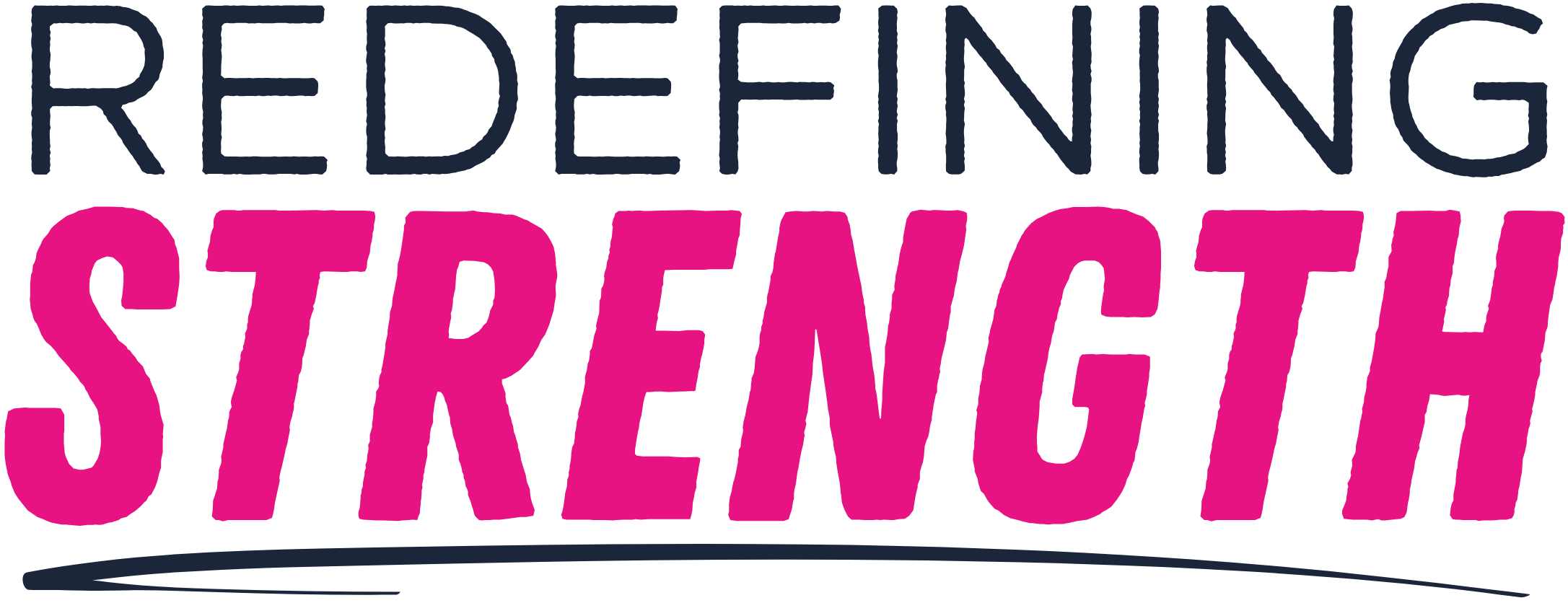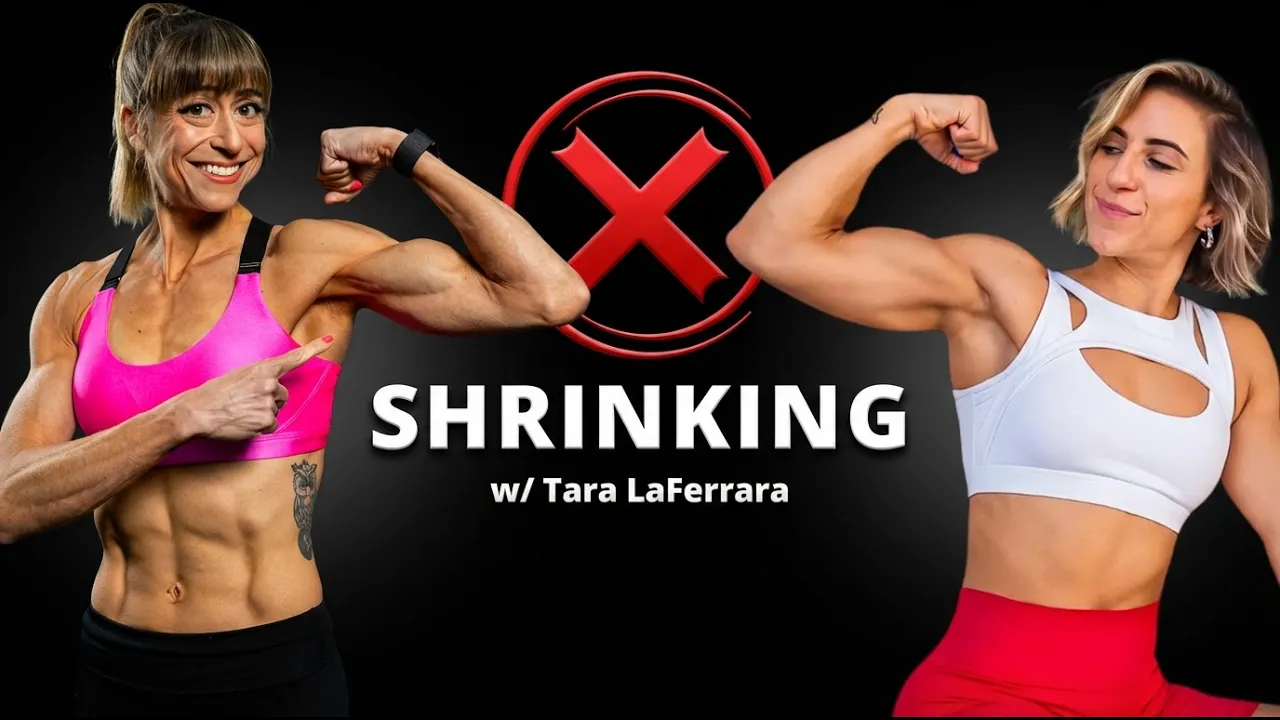LISTEN HERE
WATCH HERE
TRANSCRIPT
OPEN TRANSCRIPT
(00:27):
Hey guys, this is Cori from Redefining Strength. Welcome to the Fitness Hacks Podcast. This is the show where I share all my free workout and nutrition tips. I’m not going to ever fill this episode with sponsorships or ask you to buy anything. All I ask in return is if you’re enjoying the podcast to leave a review or leave a five star rating or even better share with somebody you think it might help. This will only take a few minutes and would mean the world to me and possibly change the life of someone. So let’s jump right in.
(00:30):
Unpopular opinion, you need to track macros. Now, one size doesn’t fit all and tracking macros can mean a variety of different things. There isn’t one approach that is right for everybody, and we usually do use about three different approaches with clients based on where they’re at from minimalist macros to full macro cycling to more visual portion guides. But it’s really key that we understand why tracking is so important to see the results that we deserve. Yes, it can be tedious, it can be boring, can be challenging at the beginning to list out everything. But the simple fact of the matter is what gets measured gets managed. So if you don’t have a clear and accurate picture of what you’re doing currently, you can’t make accurate changes based on what you need. And this is what keeps us stuck. We go for another diet with a label that tells us to cut out another thing and we cut that thing out out.
(01:16):
But with cutting out some sort of food, whether it be cutting out all carbs, cutting out breads, cutting out something specific, what we’re doing is we’re adjusting our macro ratios ultimately, but we just don’t realize that we are. So at some point when we no longer want to restrict this food, when we’re out with friends and we want to have that bread that comes out as the appetizer to our meal, and we want to have that, we no longer cut out that food. All of a sudden we’ve adjusted our macas. We’re not seeing the results we want, so we can’t sustain the restriction, and then we don’t really know why the restriction was working to make other changes, to still adjust the macros in a way that might be truly worthwhile in a lifestyle balance for us. That’s why measuring is so important and tracking is so key.
(01:56):
Now, I know you can be thinking, well, tracking is really restrictive. I’ve had problems with in the past, and again, one form of tracking doesn’t work for everybody, but we also have to realize that your food logger, your tracker is not judging. You are judging. And I also like to recognize why we have certain associations with some of the tools we implement, be it the scale or be it a food tracker. And I think it’s really key that we recognize that. A lot of times the reason we feel that tracking is restrictive is because of how we’ve always approached tracking and why we’ve always implemented it. We usually turn to tracking our food because we want to lose weight, we need to cut things out, we need to restrict, so to speak. And because we’ve always gone into it doing lots of restrictive practices, probably cutting our calories way too low, judging how we’re eating because we don’t feel good about the position we’re in, and we want to have a new and better result.
(02:41):
We have these negative associations with tracking, but really it’s us judging what we’re entering into that food tracker. We can technically even lie to the food tracker and not put in the accurate things. Don’t do that. Then we’ll give you information to make changes. But the food tracker is not judging. It is purely data off of which we can make changes. And I bring this up because I think the more we realize the associations that have come up and why they’ve come up, the more we can separate out emotions from the actual tools and then use the tools we need to see results. No, you might not track forever, but a lot of times we have to learn new portion sizes. We have to learn to adjust the way we’re fueling. We can’t just keep doing what we’ve always done otherwise. We want to achieve a new result.
(03:15):
So in order to see the accurate portions in order to see what might need to be adjusted, we need to have that data. And this isn’t just for losing weight. I have my endurance athletes track to make sure that they’re fueling their runs to fueling their workouts. I have people track if they have different gut issues and imbalances or they’re seeing different symptoms pop up to know how their food’s impacting them, if their sleep isn’t quality, right? If they’re not recovering well, if they’re constantly feeling sore, tracking our nutrition can be helpful for all these different things. So it’s not just about restriction, it’s not just about weight loss. It could even be to gain muscle to eat more, to help us build that lean muscle to gain weight rate. So there’s so many different reasons why we track, but it’s giving us that data so we can make changes that actually meet us where we’re at over just arbitrary restrictions that aren’t sustainable.
(03:58):
So as much as you might think tracking is restrictive, it’s not, not making any judgment. And again, one size doesn’t fit all in how we approach tracking, how we approach gathering that data, getting that clear and accurate picture can really vary based on what we need. But I think the more we try and take back control from some of these different systems and tools to use them to our advantage, the better off we’re going to be. And then recognizing that, no, it isn’t necessarily fun to write everything out. I don’t think anybody likes making a budget. We don’t like necessarily doing some of these different things that are tracking what we’re doing that potentially are helping us manipulate to create changes and not just allow us to live our lifestyle exactly way we want, eat whatever whenever we want in any portion we want, but they’re the best ways to be able to not have to restrict anything specifically because when you track your food, you don’t have to make something off limits.
(04:44):
You can adjust your macros in a variety of different ways to include the things you love. Even so realize that data is power to make accurate adjustments based on what you need right now and then even make changes later on. It’s not just about cutting out, it’s about tweaking and adjusting and manipulating your lifestyle to be the healthiest, happiest version of it. But you have to embrace that accurate picture of your lifestyle, that you truly want to make some changes that are sustainable and not just keep yourself stuck in the easy cycle of cutting out one food only to add it back in and then not know how to keep maintaining your results and feel like you go backwards data again, what gets measured gets managed. So please embrace tracking. Think about different ways that you can give yourself that clear picture, even if it’s not in the normal form of using a food tracker, but taking photos or just writing out your food. Start easy, ease in, but give yourself that clear picture of what you’re doing to make changes.
(05:38):
Thanks for listening to the Fitness Hack Podcast. Again, this is the place where I share all my free workout and nutrition tips. I’m never going to run sponsorships or ask you to buy anything. All I ask in return is if you’re enjoying the podcast to leave a rating review or share it with someone you think it might help. This will only take a few minutes and it would mean the world to me and possibly change the life of someone I.
*Please Note: this transcript is auto-generated and there may be some errors in the transcript





0 Comments